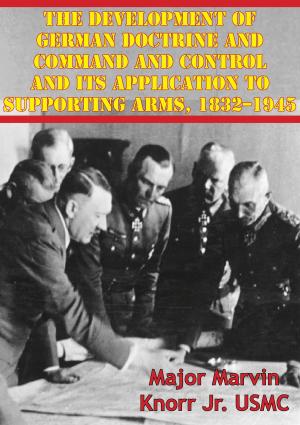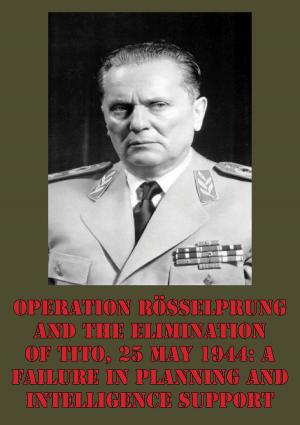Primordial Violence: German War On The Soviet Partisans
Nonfiction, History, Germany, European General, Military, United States| Author: | Major Gus Kostas USMCR | ISBN: | 9781782898030 |
| Publisher: | Lucknow Books | Publication: | August 15, 2014 |
| Imprint: | Lucknow Books | Language: | English |
| Author: | Major Gus Kostas USMCR |
| ISBN: | 9781782898030 |
| Publisher: | Lucknow Books |
| Publication: | August 15, 2014 |
| Imprint: | Lucknow Books |
| Language: | English |
In terms of Clausewitz’ paradoxical trinity, the German counter insurgency in the occupied territories of the Soviet Union 1941-1944, did not achieve a sense of balance. The second two legs of the trinity, the play of chance and probability and the element of subordination, were subverted by primordial violence and enmity.
Clausewitz offers his paradoxical trinity as a viable framework for analyzing the inherent complexities of warfare. The three interdependent, dynamic aspects of the trinity must be balanced against each other if a successful plan for war is to prevail. Additionally, Clausewitz addresses the dynamics of insurgencies and counter insurgencies. With these two analytical frameworks, an examination of a specific campaign becomes plausible.
The German efforts to thwart the partisan uprising in the occupied territories of the Eastern Front from 1941-1944 reflected the interplay of the Clausewitz triad. Primordial violence was imbued in the German people as a result of National Socialist indoctrination. The play of chance and probability reflected the largely successful active and passive measures employed by the German armed forces behind German lines in the east. The element of subordination was manifested in the pernicious Nazi policies and directives that inevitably dictated the conduct of the armed forces.
As a result of Hitler’s imbalanced, irrational eastern strategy and sequent war on the partisans, primordial violence, enmity, and hatred superseded the other two legs of the trinity. Hitler’s unlimited political and military objectives ultimately were incompatible with the German Army’s ability to pragmatically prosecute the eastern war and pacify the population that supported the partisan resistance.
In terms of Clausewitz’ paradoxical trinity, the German counter insurgency in the occupied territories of the Soviet Union 1941-1944, did not achieve a sense of balance. The second two legs of the trinity, the play of chance and probability and the element of subordination, were subverted by primordial violence and enmity.
Clausewitz offers his paradoxical trinity as a viable framework for analyzing the inherent complexities of warfare. The three interdependent, dynamic aspects of the trinity must be balanced against each other if a successful plan for war is to prevail. Additionally, Clausewitz addresses the dynamics of insurgencies and counter insurgencies. With these two analytical frameworks, an examination of a specific campaign becomes plausible.
The German efforts to thwart the partisan uprising in the occupied territories of the Eastern Front from 1941-1944 reflected the interplay of the Clausewitz triad. Primordial violence was imbued in the German people as a result of National Socialist indoctrination. The play of chance and probability reflected the largely successful active and passive measures employed by the German armed forces behind German lines in the east. The element of subordination was manifested in the pernicious Nazi policies and directives that inevitably dictated the conduct of the armed forces.
As a result of Hitler’s imbalanced, irrational eastern strategy and sequent war on the partisans, primordial violence, enmity, and hatred superseded the other two legs of the trinity. Hitler’s unlimited political and military objectives ultimately were incompatible with the German Army’s ability to pragmatically prosecute the eastern war and pacify the population that supported the partisan resistance.






![Cover of the book Ambassador Morgenthau’s Story [Illustrated Edition] by Major Gus Kostas USMCR](https://www.kuoky.com/images/2014/august/300x300/9781782893004-CP2b_300x.jpg)
![Cover of the book Gallipoli Diary Vol. II [Illustrated Edition] by Major Gus Kostas USMCR](https://www.kuoky.com/images/2015/november/300x300/9781786251084-Blnh_300x.jpg)







